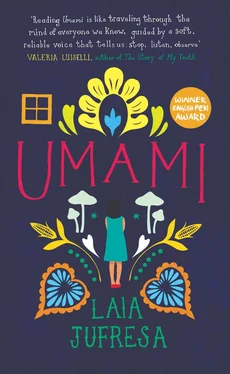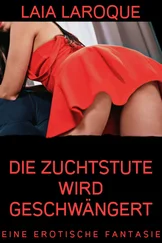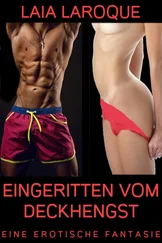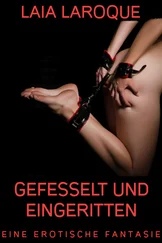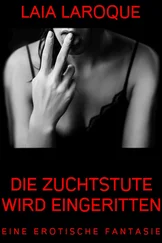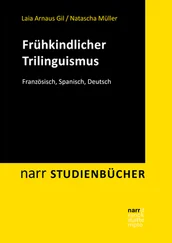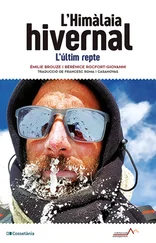‘Exactly.’
‘Let’s see, bring it here.’
I pointed to the sentence in the letter, and she immediately burst into a fit of giggles; so intense that I caught them too. We laughed until we cried. We hadn’t laughed like that since before we found out about her cancer, perhaps even earlier. When at last we got a hold of ourselves, I asked her what it had all been about. It turned out that throughout our entire marriage, every time I had used the acronym KO, she had read OK.
‘I remember this, it was hilarious.’
‘But couldn’t you see it was exactly the reverse of OK?’
‘I thought it was your dyslexia.’
‘What dyslexia?’
‘I don’t know, yours. I always thought it was your own very particular brand of dyslexia.’
‘You never brought it up!’
‘Well, that makes us even.’
‘Even how?’
‘Even because you never mentioned that my miserable morning stars cheered you up!’
*
I gave Marina the Joaquín Sorolla book today. I think it would have made Noelia happy. Or maybe not, because it was her favorite, but she definitely would have agreed that if having it around depresses me, better to pass it on to the aspiring painter.
While I was teaching in Madrid, Noelia came and spent two weeks with me and became obsessed with the Sorolla Museum, mainly because it was right next to the house and had a cool yard where you could sit and read under a tree. It didn’t have a café, which meant there weren’t any waiters: Noelia didn’t rub along with Madrid’s waiters. Some afternoons we’d go together to see the Sorollas. Art wasn’t her thing on the whole, but after a few glasses of wine and some tapas, boy, did she get into her painting. On the weekends, which is to say, on the days when we would head out for an aperitif, Noelia would refuse to wear her glasses; a vain habit which also meant she only saw blurry versions of Sorolla’s oils. Where others would stand back and appreciate a vast landscape from afar, she’d have to get right up close, and saw nothing but brushstrokes. The clumsy chaos of oil paint smudged on canvas with a spatula; the distorted, screwball delight that were Sorolla’s dabs up close convinced Noelia that she was admiring an abstract painter. Before we went back to Mexico I got her the exhibition catalog. She flicked through it with her surgical glasses on and was utterly taken aback, a little disappointed even. But later she grew fond of Sorolla, and the catalogue was always lying around somewhere in the living room.
Along with the book, I gave Marina a photo of Noelia and commissioned a portrait.
*
I’ve got a new, corrosive obsession: regret distilled to its purest form. For thirty years, at the end of each week, Noelia would throw her issue of Astros in the trash. What a damned stupid thing to do! If I had them now, I could chart my wife’s morning moods over our thirty-year period of cohabitation. That would have been a real project. In my insomnia, I even considered hunting down Madame Elisabeta to ask her for the back issues. She must keep a private archive somewhere in her ramshackle apartment on Avenida Revolución, in metal filing cabinets decorated with gold star stickers. But just the thought of Elisabeta possibly also being dead — her and her parakeet — was enough to dissuade me from getting in touch. I’m scared I’ll find out who took over writing Astros . Maybe Pisces is rehashing old issues, or publishing Google Translate versions of some obscure Polish astrology website. That’s why I don’t look into it, you understand. Not because I would have regretted hearing that Pisces had been left on her own. Quite the opposite. Lately, despite myself, seeing other people widowed only makes me want to say, ‘Come on then, let’s see how you like it.’
I’m all alone except for Cleo and the trees. But the trees don’t count because they’re too tall and they don’t talk to me. Cleo is black with some brown, and she’s furry, and she’s the oldest of all Emma’s dogs. I scratch her belly until her ziplings call her from somewhere and she goes racing to them. I don’t have any dogs. Not here, and not in Mexico. Olmo and I are always asking for one, but Theo is allergic and Ana wants a cat. Even if I don’t have any dogs I still know that dogs talk to each other, and I still know that if something is more or less the same size as you and it lives in the same house as you, then that thing is your zipling. Cleo lives with her ziplings and with Emma. Emma’s house smells of chimney and dog and sometimes of wet dog. She has big fat rugs on the floor with weird drawings on them that make you dizzy if you stare at them, and she has wooden masks on the walls. Everything makes you feel like it’s Christmas. Apart from the masks. The masks make you feel like it’s Halloween.
Cleo runs off, forgets all about me and doesn’t come back. Now I can see chestnuts everywhere and chanterelle nowhere. The chanterelles are hiding and I am sick of looking for them. I want to go back to the house but I don’t know which way it is. I think maybe down, because we’ve been walking up and up and up. I follow Cleo’s footprints in the mud until I reach a part that’s very dry with no mushrooms and no footprints. I’m cold. I roll down the sleeves of my wooly dead pilot sweater. Where is everyone? The grove looks like an enchanted forest. I dare myself to close my eyes, but then I get scared and open them again. I try again with my back against a tree because maybe that’s easier. I have to get at least to ten. And I have to count the numbers properly like how Pina showed me yesterday when we were breathing under water with the straw.
‘One thousand, two thousand, three thousand, four…’ I get scared and open my eyes again.
My brothers are always saying I’m a scaredy-cat, but it’s not true. Only when I get scared is it a little bit true.
There are trees all around and their shadows are bigger. I feel like maybe now they might talk to me but that they won’t say nice things. I get scared for real and start to walk as fast as I can without hurting my feet. I spot the house but it’s so far I can cover it with my hand in front of me. The forest starts to talk and I have to run, even without shoes on, and though my feet are like a pair of mud cakes. I trip, get up again and start to cry a little, but I keep running and I keep running and crying and then suddenly there’s no more shade and no more chestnuts and no more downhill. I run on the flat ground until I’m in the garden and it’s sunny, and I’m almost saved, and I see everybody and I run really fast to where they are and when I get there no one pays me any attention.
They’re all standing around the biggest of the new ponds. Emma is smoking one of those cigarettes she makes herself and I think she’s giving a class because she’s doing her teaching move, which is when she waves her hands around a lot. Ana and Pina are looking at her, ignoring me. Mama puts her hand on my head and plays it like a piano; sometimes I like it and sometimes I sit it (even though Dad says you can’t sit something, no matter how much you can’t stand it). I don’t care if they ignore me anymore because now I want to follow the class, which is on how the new ponds work. I’m going to understand it better than Ana and explain it all to Dad when he’s back from the island.
Emma says this pond is part of a system of ponds that filter all the sewage until it’s clean. Mama sees my face scrunch up and explains to me that sewage is what in Mexico we call black water and white water. Black water has all the poop in it. White water has all the soap in it. Clean water doesn’t have anything in it and it’s just called water.
I ask Emma how the pond gets all the poop out and she says with pebbles and gravel. I really don’t get this. I can feel my face scrunching up again. Sometimes I have a question but I don’t know what it is and my face scrunches up like a rabbit’s. Emma takes me by the hand and leads me up to where the ponds start. She has a really weird hand that feels super soft on the back but all rough on the palm. Rough like the volcanic rock outside the concert hall where I play with my ziplings while our parents rehearse. Sometimes they rehearse for so long Theo says we’ll melt like lava and become part of the volcanic rock.
Читать дальше
